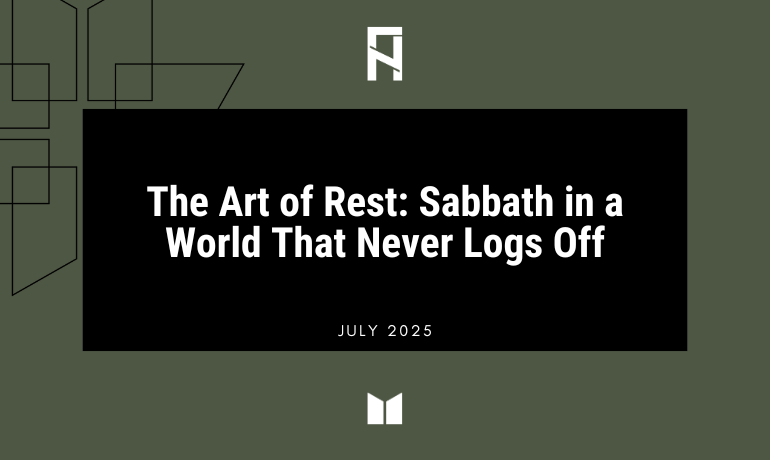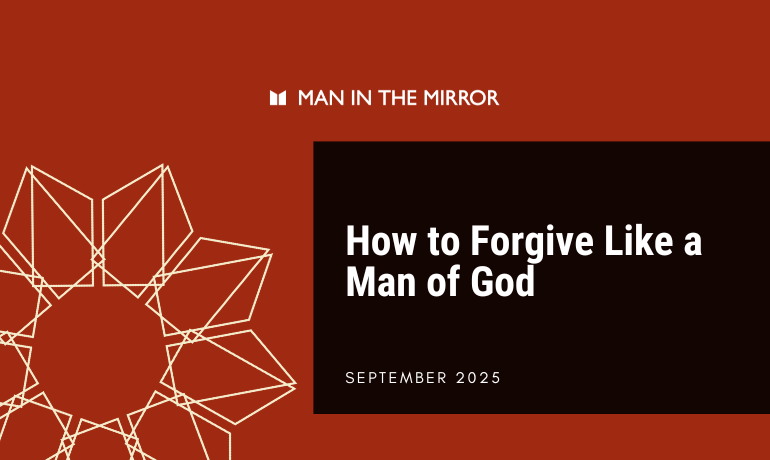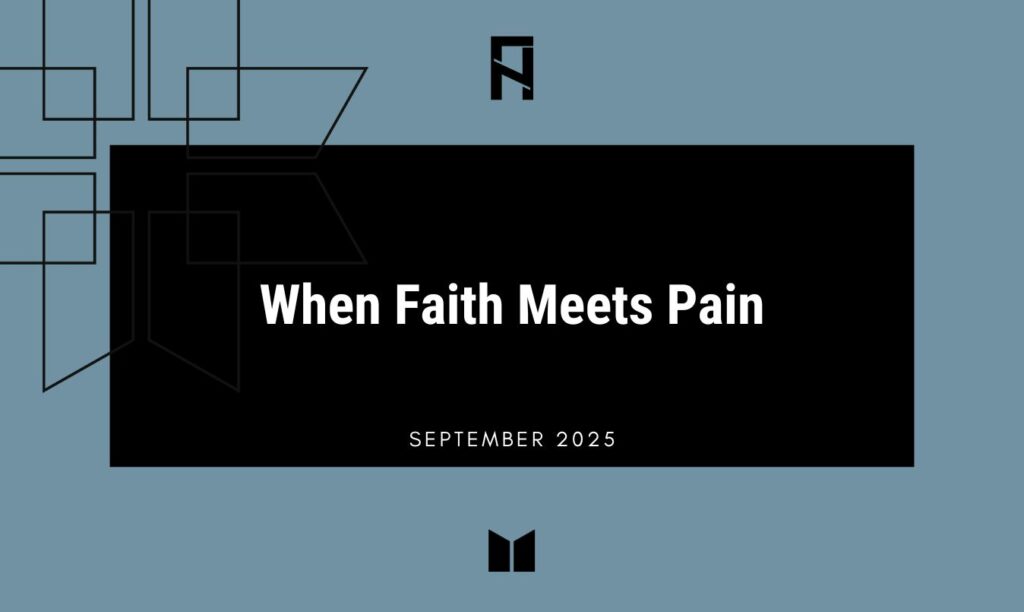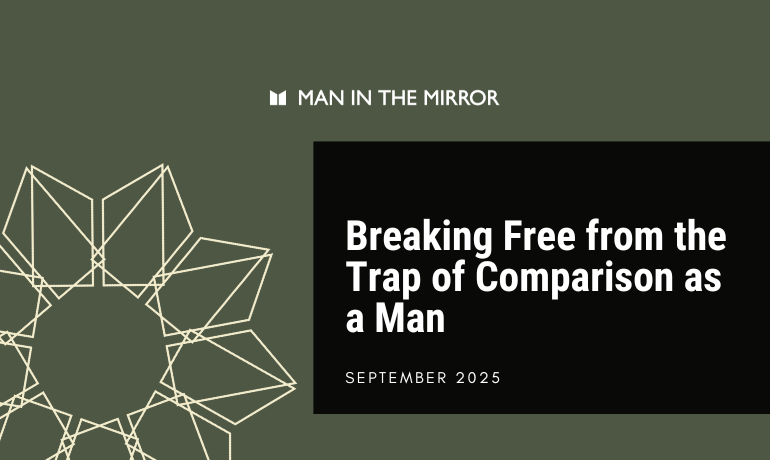We live in an age of luminous screens and exhausted souls. Our workweeks bleed into our weekends. We attend meetings while driving, reply to emails at dinner, and doomscroll our way into a restless night. The language of the modern world is activity. We praise the hustle. We canonize productivity. We joke about burnout while quietly fearing that rest is weakness.
And so we move faster, believing that if we stop—even for a moment—we will fall behind. Behind what, exactly? The line is always moving. The scoreboard is always updating.
Once, rest was for the body. Now, it is for the mind. Our ancestors labored under sun and soil. Today, our backs are curved not from plows but from posture. Yet the fatigue is no less real. It has simply migrated inward. The noise is now mental. And it never turns off.
Against this backdrop, the biblical call to Sabbath rings with surprising relevance. Six days you shall labor, but the seventh is for rest (Exodus 20:9-10). To modern ears, it sounds quaint, even quaintly oppressive. But the Sabbath is not a restriction; it is a revolt. A weekly protest against the dominion of work and the cult of self. It is an act of humility, a declaration that we are not gods. Even God, we are told, rested. And He did not need to.
The Sabbath was made for man (Mark 2:27), not as a legalistic leash, but as a gift. A restoration of rhythm. A reordering of the soul. In this article, I want to explore Sabbath not merely as a theological idea, but as a vital human art: the ability to stop, to receive, and to remember.
From Fields to Feasting Tables
In agrarian societies, rest was not optional. The human body imposed its own limits. There was only so much daylight. Muscles grew tired. Harvest seasons came and went. The rhythm of rest was built into the created order. The Sabbath did not feel abstract; it was physical, tangible. To cease work was to let the field lie fallow, to sit at the fire and speak with one’s children, to join the village in shared meals and stories.
In many traditional cultures, especially across southern Europe and Latin America, Sunday remains something like this. Church is only the beginning. The streets quiet. Stores close. Afternoons stretch into evenings around long tables, heavy with food and laughter.
Contrast this with the modern American Sabbath, if it can still be called that. Sunday is for catching up. Laundry, grocery runs, project backlogs. Church is often squeezed between obligations. And even if we do carve out a moment to “rest,” we do so while tethered to screens. A man may recline, but his mind scrolls on.
We have not become more free. We have simply changed masters. If once the master was physical survival, now it is digital relevance. In place of community, we have connectivity. Instead of feasting, we graze. Instead of reflection, we consume. This is not progress. It is a subtle captivity.
The Sabbath was meant to punctuate life with meaning. To lift our eyes from the soil and remember our place in the cosmos. It was a reset, not just of labor but of perspective. By disconnecting from the work of our hands, we reconnect to the work of God’s.
Even secular thinkers now speak of the need for “deep rest” and “digital detoxes.” We are relearning through exhaustion what Scripture taught through commandment: that to rest is human, and to never rest is inhuman.
Rest is Humility and Trust
Why do we find rest so difficult? Not simply because we are busy, but because we are anxious. Beneath the hustle lies a fear: that we are not enough. That our value is in our output. That if we stop, we will be forgotten, surpassed, or unloved.
The Sabbath strikes at the root of this fear. It declares that our worth is not in our performance, but in our being. That we are not slaves, but sons. That we are not the Creator, but the created. The Sabbath humbles us, yes—but in the way a child is humbled by his father’s embrace.
This is the wisdom behind the manna story in Exodus 16. God feeds the Israelites in the desert, but with one strange rule: collect only what you need each day. On the sixth day, gather double. On the seventh, rest. Some try to hoard. The manna rots. The lesson is clear: you cannot save yourself by overwork. You must trust the Giver.
This cuts deeply into our modern psyche. We believe that security comes from hustle, not dependence. We celebrate self-reliance, yet are riddled with anxiety. In truth, many of us never stop working because we are afraid of what silence might reveal.
The Sabbath invites us to enter that quiet space and discover that we are still held. That God’s love does not rise or fall with our achievements. That we can be unproductive and still be beloved.
But this is not easy. In fact, it takes courage. Sabbath is not escapism. It is an act of moral resistance. It says to the world, “I do not belong to you.” It says to the inner critic, “I will not let you rule me.” It says to God, “I trust You to be God, and I will be content to be man.”
Reclaiming Sacred Time
If the art of rest is to survive in the modern world, it must be cultivated not only in the heart but in the habits and structures of life. Our institutions—family, school, work, church—must conspire in favor of sacred time, not against it.
Imagine a workplace where no one is expected to check email on Sundays. Imagine a family where phones are put away after church and the afternoon is for rest, nature, play, or simple conversation. Imagine a church that not only preaches Sabbath but models it: not by filling Sundays with programs, but by teaching its people to be, not just to do.
This is not nostalgia; it is reform. We are not asking the world to go backward, but forward wisely. The technological world is not inherently opposed to rest. But it must be governed, not obeyed.
These are not rules. They are liturgies. And all of life runs on liturgy—whether sacred or secular. The question is not whether we worship, but what we worship. The Sabbath helps us worship rightly.
Rest as a Form of Love
The Sabbath is not ultimately about stopping. It is about loving. It is love for God, who invites us into His rest. It is love for others, whom we treat not as tools but as fellow image-bearers. It is love for ourselves, not in the form of indulgence, but of restoration.
In a world where everything demands your attention, to rest is to offer your attention to what truly matters. In a world that never stops, to stop is to remember who you are.
Six days you shall labor. But on the seventh, rest. Not because you are tired, but because you are human. Not because you are weak, but because you are free. Not because the world is done, but because the world is not yours to finish.
The art of rest begins here. And it begins again every week.






